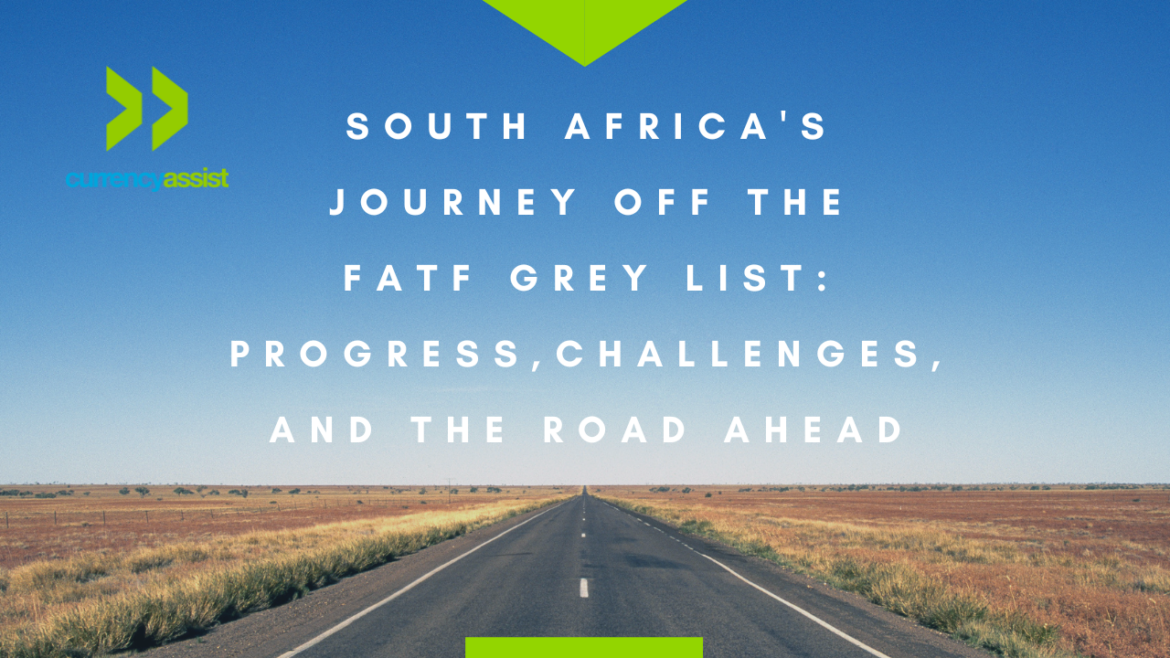In the dynamic world of global finance, few events capture the attention quite like being greylisted by the Financial Action Task Force (FATF). For South Africa, February 24, 2023, marked a pivotal moment as it found itself under the FATF’s scrutiny due to perceived deficiencies in its anti-money laundering, terrorist financing, and proliferation financing measures. Fast forward to today, and South Africa’s journey off the grey list is one filled with progress, challenges, and a roadmap towards financial integrity.
Let’s recap where we stand: initially, South Africa faced 20 deficiencies out of the 40 FATF recommendations. However, recent updates indicate significant strides forward. Out of those 20 deficiencies, 15 have been re-rated as no longer deficient, with 14 of them being either fully or largely compliant. This progress is a testament to the dedication and collaborative efforts of various government agencies, including the National Treasury, the South African Police Services’ Directorate for Priority Crime Investigation (the Hawks), and the National Prosecuting Authority, among others.
But what does being on the grey list really mean for South Africa? It’s not just about regulatory compliance; it’s about safeguarding the nation’s financial system, fostering investor confidence, and ensuring sustainable economic growth. The impact of prolonged greylisting is palpable, with potential deterrents for investors, increased compliance costs for financial institutions, and challenges in accessing international finance. Moreover, heightened scrutiny of cross-border transactions can affect the smooth flow of goods and services, impacting the competitiveness of South African exports and imports on the global stage.
Despite these challenges, South Africa remains steadfast in its commitment to address the remaining deficiencies. The five areas that still require attention include national and international cooperation, NGO regulations, targeted financial sanctions related to terrorism, embracing new technologies, and tightening controls on cash couriers. It’s a daunting task, but one that South Africa is tackling head-on.
Key legislative amendments, such as the General Laws (Anti-Money Laundering and Combating Terrorism Financing) Amendment Act (2022) and the Protection of Constitutional Democracy Against Terrorist and Related Activities Amendment Act (2022), underscore South Africa’s proactive approach towards enhancing its anti-money laundering and combating financing of terrorism framework. Additionally, the establishment of the Interdepartmental Committee on AML/CFT (IDC-AML/CFT), chaired by the National Treasury, exemplifies the coordinated efforts across various government entities.
However, challenges persist. Complex money laundering and terrorism financing cases, informal channels for global money remittance, and asset recovery from crime and corruption remain areas of concern. Continuous education, training, and awareness-raising efforts are vital in addressing these challenges. The financial services industry plays a crucial role in identifying and reporting suspicious activities, underscoring the importance of ongoing capacity building and knowledge sharing.
Looking ahead, South Africa’s goal is clear: to emerge from the grey list by early 2025. This requires concerted efforts, unwavering commitment, and sustained progress across all fronts. The FATF’s timeline provides a roadmap for action, with deadlines set for addressing the remaining deficiencies. Collaboration between government agencies, regulatory authorities, and the private sector is essential in navigating this journey towards financial resilience and transparency.
In conclusion, South Africa’s journey off the FATF grey list is a testament to resilience, determination, and collective action. While challenges remain, progress is evident, and the path forward is clear. By staying focused on the goal, fostering collaboration, and embracing innovation, South Africa is poised to reclaim its position as a trusted global financial hub. Together, we navigate the road ahead, towards a brighter and more resilient financial future.
With determination and collaboration, South Africa marches forward, towards a future free from the shadows of the grey list.

